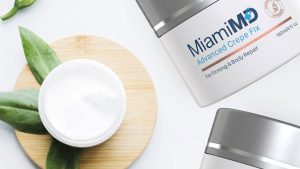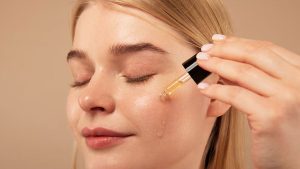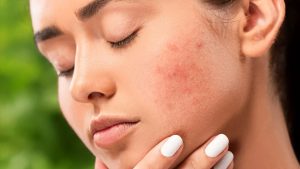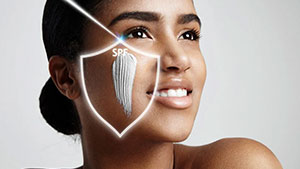What Vitamins Are Good for Skin?
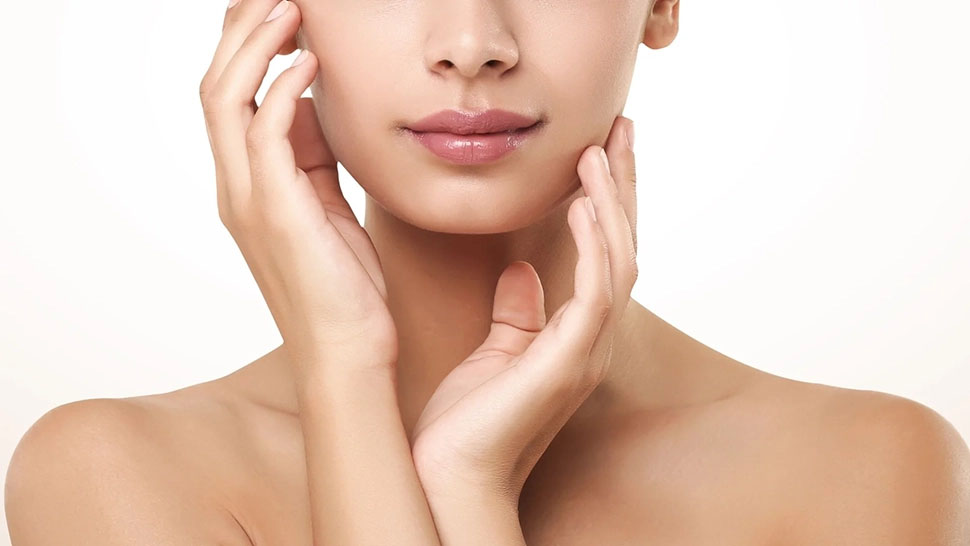
When it comes to vitamins, it’s not just about what you eat — what you put on your skin matters, too. Many skincare products today are packed with vitamins that can help you achieve and maintain healthy skin.
These vitamins are powerful ingredients that target different skin concerns, like signs of premature aging (fine lines and dryness), sun damage, and pigmentation issues or dark spots. From vitamin A to omega-3 fatty acids, using products with these vitamins can boost your skincare routine and give your skin the nutrients it needs directly.
Let’s explore some of the most popular vitamins found in topical skincare products and how they can help you achieve healthy, glowing skin.
Vitamin A
Vitamin A is one of the most popular and essential vitamins for skin health. It helps your skin look fresh and youthful by supporting the growth of new skin cells. This vitamin also helps prevent damage from the sun and can make your skin look smoother.
What Are the Skincare Benefits of Vitamin A?
Vitamin A is great for reducing the appearance of signs of aging, like fine lines and wrinkles. It helps support skin cell turnover, which means it can help your skin get rid of dead skin cells and lets new cells come to the surface — this can make your complexion look brighter and more even.
Vitamin A also helps offer moisturization, working to keep your skin from drying out.
Let’s Talk About Retinoids
You may have heard of retinoids when talking about vitamin A. Retinoids are a form of Vitamin A that you can use in creams, lotions, or gels. “It’s recommended to start incorporating retinoids in your mid-20s to early 30s, as this is when collagen production starts to decline,” says facialist and founder of Skinesis, Sarah Chapman (1).
Studies have shown they help improve skin texture, ease breakouts, and make wrinkles less noticeable (2).
Retinol is a common type of retinoid that you might find in over-the-counter skincare products. There are also stronger retinoids that you can get from a doctor if you need more help with serious skin problems.
Meet the Retinoid Family
Meet the holy-grail vitamin A derivatives, and discover their role in the retinoid family.
- Retinol: A mild, over-the-counter form of retinoid suitable for beginners. It helps reduce fine lines and improve skin texture.
- Retinyl Palmitate: The gentlest form of retinoid, often used in anti-aging products for sensitive skin. It converts to retinol in the skin.
- Retinaldehyde: Stronger than retinol but still available over the counter. It’s good for reducing wrinkles and acne.
- Adapalene: A prescription-strength retinoid that’s also available in some over-the-counter acne treatments (like Differin).
- Tretinoin: A prescription retinoid that’s stronger than over-the-counter options. It’s effective for treating acne and signs of aging.
- Tazarotene: The strongest prescription retinoid, often used for severe acne or psoriasis.
- Isotretinoin: An oral retinoid, also known as Accutane, used for severe acne that’s resistant to other treatments.
Each retinoid has different strengths and may suit different skin types and concerns.
B Vitamins
Many different types of B vitamins are good for your skin. Some of the most important ones for skincare are niacinamide (vitamin B3), biotin (vitamin B7), and vitamin B5. Each of these helps your skin differently, but they all work together to keep your skin looking healthy.
What Are the Benefits of B Vitamins for Skin?
B vitamins help your skin stay soft and smooth. They can also help calm any redness or irritation and improve skin hydration, which means your skin stays moist and doesn’t feel dry or flaky.
-
- Niacinamide (Vitamin B3): This B vitamin is great for reducing redness and helps keep your skin barrier strong. A strong skin barrier helps keep out harmful things like dirt and pollution.”It is commonly used in skin care for its anti-inflammatory and brightening benefits [and] has been shown to soothe the skin and even out hyperpigmentation,” says Dr. Joshua Zeichner, Associate Professor of Dermatology and the Director of Cosmetic & Clinical Research in Dermatology at Mount Sinai Hospital in New York City (3).
- Biotin (Vitamin B7): Biotin is often called the “beauty vitamin” because it’s not only good for skin but also hair and nails. It helps keep your skin’s natural oils balanced.
- Vitamin B5 (Pantothenic Acid): This vitamin helps to hydrate the skin, making it a good choice if you have dry skin. It also helps with healing any small cuts or scratches on the skin.
Vitamin C
Vitamin C is a powerful antioxidant that protects your skin from things that can cause damage, like pollution and sun exposure.
Studies show that using vitamin C (also called ascorbic acid) in a serum or lotion can help make your skin look younger, support collagen growth, and lighten dark spots from UV radiation, thanks to its antioxidant properties (4).
Why Is Vitamin C Good for Skin?
Vitamin C helps your skin look brighter and healthier. It supports collagen production, which is important for keeping your skin firm and smooth.
Collagen is a protein that helps your skin stay strong and supports skin elasticity, and having enough of it can reduce the appearance of fine lines. When your skin is exposed to sunlight, it can sometimes create dark spots. Vitamin C helps lighten the appearance of those spots and make your skin tone look more even while also supporting collagen synthesis.
Not only that, antioxidants like vitamin C protect your skin from free radicals. Free radicals are harmful particles in the environment that can make your skin age faster. Vitamin C fights against these particles, helping your skin stay youthful and protected from everyday stressors.
“I generally recommend applying vitamin C at least once daily in the morning. Depending on skin type and other actives used in your routine, vitamin C can also be applied twice daily,” says Consultant Dermatologist Dr Alexis Granite (5).
Vitamin D
Vitamin D is sometimes called the “sunshine vitamin” because your skin makes it when you’re in the sunlight. It’s not just good for your bones — it’s good for your skin, too.
What Are the Benefits of Vitamin D for Skin?
Vitamin D helps your skin repair itself and can be useful for people with skin conditions like eczema or psoriasis. It supports the skin’s immune system, which helps the skin defend itself against germs. Not only that, studies have shown it supports a strong skin barrier (6).
If you don’t get enough Vitamin D from the sun, you can also get it from foods like fish and fortified milk or by taking a supplement.
Vitamin E
Vitamin E is another popular antioxidant used in many skincare products. It helps keep your skin moisturized and can reduce the appearance of scars.
How Does Vitamin E Benefit Skin?
Vitamin E helps protect your skin from damage caused by things like UV rays from the sun and pollution. It’s great for soothing skin that feels dry or irritated. Vitamin E also works well when it’s paired with vitamin C because they boost each other’s antioxidant effects. You can find vitamin E in foods like nuts and seeds or skincare products like lotions and creams.
Like vitamin C, vitamin E supports skin during exposure to free radicals, which can cause damage. It keeps your skin looking younger and can help reduce fine lines and wrinkles.
Vitamin E is especially good for people with dry skin because it helps to seal in moisture. “Unlike most other antioxidants, vitamin E is also a very hydrating molecule since it works as both a humectant (to absorb water into the skin) and an emollient (to trap water in the skin),” says Dr. Loretta Ciraldo, Miami-based board-certified dermatologist (7).
Omega-3 Fatty Acids
Omega-3 fatty acids are not vitamins, but they are still great for your skin. These healthy fats are found in foods like fatty fish, walnuts, avocados, and flaxseed. They are essential for keeping your skin looking and feeling its best.
What Are the Benefits of Omega-3s for Skin?
Omega-3s help keep your skin hydrated and reduce irritation. If you have conditions like eczema or psoriasis, omega-3s can help calm the skin and reduce redness or irritation. They also play a role in keeping your skin’s natural barrier strong, which helps keep moisture in and irritants out.
The Bottom Line
Using skincare products with vitamins can make a big difference in your skin’s health and appearance.
Each vitamin — whether it’s vitamin A for smoother skin, vitamin C for brightening, or vitamin E for hydration — brings its own benefits when applied topically. Incorporating these vitamins into your skincare routine can help address different skin concerns, from fine lines and dark spots to dryness and irritation.
For the best results, look for products with these vitamins in their active forms, and remember to be consistent with your routine. Giving your skin the nutrients it needs from the outside can help you achieve a healthy, radiant glow.
Sources:
- Retinol vs retinal: the retinoid family explained | Harper’s Bazaar
- Retinoids in the treatment of skin aging: an overview of clinical efficacy and safety | PMC
- What Is Niacinamide? Skincare Benefits and More | Good Housekeeping
- Efficacy of topical vitamin C in melasma and photoaging: A systematic review – Correia – 2023 – Journal of Cosmetic Dermatology | Wiley Online Library
- Best vitamin C serum 2024 | Recommended by dermatologists | Cosmopolitan
- D as in Delta: The Changing Views on Vitamin D in Dermatology | Practical Dermatology
- What Vitamin E Actually Does For Your Skin | Allure
